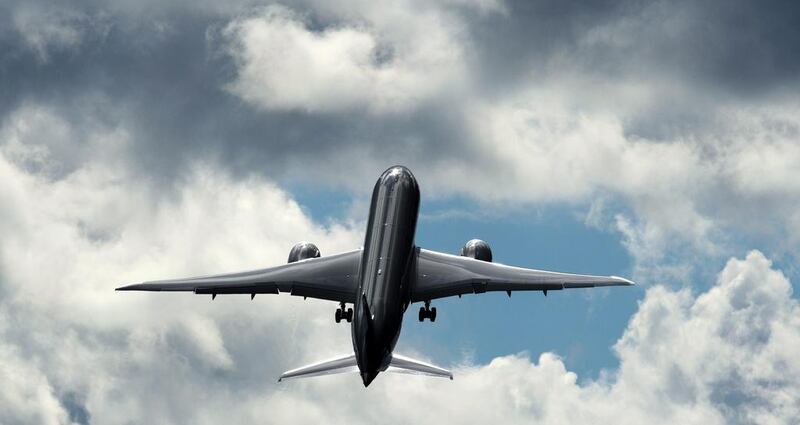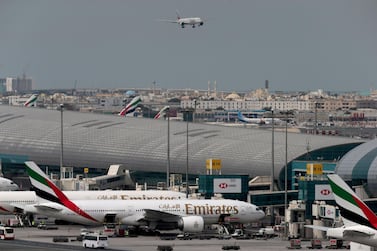Global airlines face a net loss of $39 billion (Dh143bn) in the second quarter, burning through $61bn of cash, as air travel demand and revenues plummet due to the coronavirus outbreak, the International Air Transport Association (Iata) said.
Traffic is estimated to fall by 71 per cent, the steepest drop for the year, while revenues could shrink by 68 per cent, with weaker carriers facing a "substantial" risk of bankruptcy, Iata said in a media conference call on Tuesday.
"The crisis is beyond anything we have ever had in our industry," Alexandre de Juniac, Iata's director general, told reporters.
Iata's current scenario forecasts airlines will return to pre-crisis levels by the fourth quarter of 2020 as governments' fiscal stimulus measures and the anticipated gradual relaxation of travel restrictions take effect, according to Brian Pearce, Iata's chief economist.
The industry could then see a "significant recovery" in 2021 – unless the coronavirus makes a comeback, he added.
"It could take much longer for us to get through issues with virus, it could be that virus comes back," Mr Pearce said. "We’re exploring scenarios with a much longer period of weakness and the pressure on airlines is correspondingly larger."
The "severe" cash burn airlines are facing is compounded by an additional $35bn colossal liability in the second quarter, Iata said. This comes as airlines are refunding sold but unused tickets as a result of flight cancellations due to government-imposed travel restrictions, Iata said.
Governments are stepping up financial aid packages for their airlines to stem the fallout from the coronavirus outbreak.
There is likely to be an increasing trend of states taking shares in - or even nationalising - airlines in return for equity as financial relief for the companies during the crisis, Mr de Juniac said.
On Tuesday, the government of Dubai said it will inject funding into state-owned Emirates given the airline's strategic importance to the economy and its role in transforming the emirate into a global travel hub.
The announcement reflected Dubai's recognition of the importance of its carrier for the well-being of the emirate and its economy, Mr de Juniac said during the media call.
"That's the key issue: that's what we think every government should have as an approach," he said. "It's a key asset for any country to have a strong airline industry."
While most global carriers continue to operate cargo flights, which plays an important role in the transport of medical supplies, freight only contributes about 10 per cent of a full-service carrier's revenue and is a relatively small proportion of its business, Mr Pearce said.
Complicating the airlines' recovery from this pandemic, compared to previous ones, is that the global economy is tipping into a recession as the lockdowns slow economic activity and dent consumer confidence, he said.
Plane makers will also see a setback with delayed deliveries and some cancellations or reshuffling of orderbooks as their airline customers struggle to survive the crisis, Mr de Juniac said.








